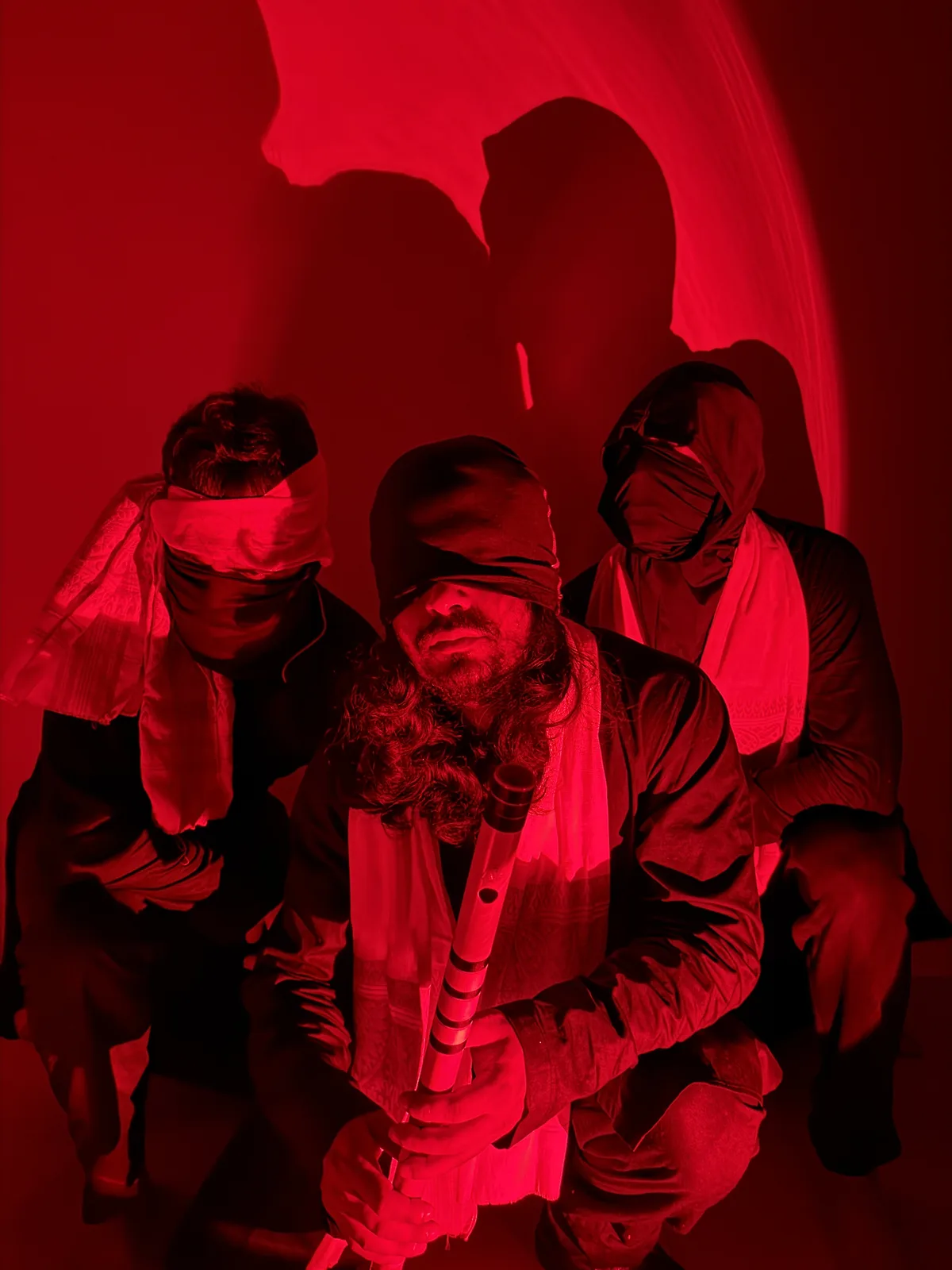The first album release from the one of the Best in the Business, Seedhe Maut, one half Encore ABJ (a.k.a Abhijay Negi), one half Calm (a.k.a Siddhant Sharma) was a pivotal release for their careers. After creating buzz with singles and their EP “2 Ka Pahada”, and quickly being hailed as the flag bearers of Indian and Delhi Hip hop, the pressure was on to drop a project that would cement their place in the scene, while also giving a fitting reply to people who doubted them until then. The obvious choice for an album when in this position, would’ve been a rage trap album, filled with overt flex anthems and replies to their haters.
Seedhe Maut however, decided to do things differently. With the tracks documenting their journey, delivering messages of hope and motivation between them, all over experimental, ostentatious and luxurious sounds crafted by Sez on the Beat (a.k.a Sajeel Kapoor), something Indian Hip Hop had never seen before. 6 years later, it’s hailed as one of the best albums of DHH, and probably the best debut full length album it has ever seen.
The cover art designed by Jayesh Joshi does this justice, it’s a modified version of the Dandi March statue in Delhi. It features the 3 artists (Calm, Encore ABJ), followed by Siddhant, Komal Jajoo, Shubham, Kode, Yungsta and Frappe Ash.
The intro sets up the stage perfectly, it’s a skit which features 2 aunties gossiping about Seedhe Maut and their parents, speaking ill of their music and them, and how they would never let their kids listen to this music.
“Shaktimaan” is one of the fan favourites from this album, the melody comes in the form of distorted, pulsating flutes with hard trap drums. This song is all about the common man of India, living their 9-5, keeping the wolf at the door, or at least it’s gonna stay like that until they find the Shaktimaan inside them, is what Calm and ABJ aim to impart from this song. All sorts of double entendres and parallels are drawn to the cartoon superhero, like mentioning the name of his nemesis Kilvish, the famous “Arre Devi ji!” that Shaktimaan uses to refer to his love interest, Geeta. Both their verses are an aggressive and deep lesson (and perhaps a wake-up call for some) about how you’re gonna be a grain of sand in this desert until you find the power inside you to become Gangadhar (the one who yields the Ganga river).
The second track starts off with Calm painting a picture for us, about how he’s drowning and how no one’s coming to help him. He talks about a girl who’s caught his eye, and how he wants to get with her. He glides into his verse, delivering lines about how he and hundreds of others gave their everything to her, but she only wants someone toxic, someone who’s not good for her, someone who’ll only buy her everything she wants. Calm talks about how he tried to be that guy for her, but even after giving her all his love, she only wanted expensive brands and money from him. As he concludes his verse, he issues a warning to other guys who might find themselves in the same situation.
Encore takes the mic next, however his verse is very different from Calm’s. He raps about a relationship he was in, how it was the best feeling in the world when she was by his side, how she saved him from the merciless waves of life during his tough times but alas, they were not meant to be and they separated. Encore talks about the bittersweet feeling in his heart, how it pains him that she left him, but he’s also thankful for her because if it wasn’t for her during the tough times in his life, he would’ve drowned. The hook is beautifully written and structured such that it fits the situation of both Calm and Encore, how they both feel like they’re drowning, but in different ways and because of different reasons. Calm, because he realised the girl he loved was only with him for the fame and money, and Encore, because he lost a beautiful connection he had with that person.
“Uss Din” is a track which imparts wisdom to new upcoming artists, who are often very impatient to rise to the top and quit when they don’t see any results instantly. This track also acts as a reminder to people who used to doubt SM when they were coming up. Calm handles this one entirely as both his verses talk about that one day when things will be better, when they’ll pop champagne knowing they did what they set out to do, knowing that they’ve made their parents proud and lifted all the stress and tensions from their shoulders. He also advises artists to not get caught up in the industry games and do the music for the music. In between his verses, he makes spaces for some lines about how SM got where they are because of their talent, how they’re not gimmicks and how they’ll destroy anyone who tries to get in their way.
They reinforce these lines in the track “Dehshat”, a rage fueled, hard hitting song talking about anyone who tries to stop SM will be executed, and how they’ve struck terror in the hearts of their competitors and haters. Looking at how SM’s career panned out, I think it’s safe to say they made this song a reality for themselves, while also fueling so many others to do it too.
Encore takes the reins from Calm for “Meri Baggi”. In this track, through a recollection of his previous night, where he went to a club and met a lot of people, he talks about some fame that SM had gained back then, how he handles it, and how it’s only a matter of time before they blow up and their songs are played everywhere. He also does half a verse of very quick chopper flows in this one, a nice change of pace from the slow trap vibe of this album. The hook is also a hilarious and witty interpolation of a very common saying in the Delhi/NCR area.
Sez crafted a lot of flute heavy instrumentals for this album, and “Pnp” is no different. This one has to be one of my favourite instrumentals from Sez . It’s got it all: dark, gritty, grimy and heavy sliding 808s with big airy drums that knock. The beat pairs up perfectly with what Encore and Calm talk about on this track. Pnp is an abbreviation for “Paisa, Nasha, Pyaar. SM’s lines on this one revolve around how the young generation throw their lives away for “Pnp”, and how they were also in that hole once, but they managed to pull themselves out of it and be what they are today.
“Pankh” will give you food for thought while tears are rolling down your cheeks. It features a beautiful, poignant boom bap instrumental (my favourite instrumental from this album) paired with exquisite croons from Bawari Basanti and poetic verses from SM. Calm starts off his verse rapping about his experience with school and the education system (something that is probably true for 95% of all Indian kids), how his dreams were shattered and bogged down, how he always acted out of fear, making decisions off of people telling him what to do, ending with an amen of sorts, asking the listeners to just spread their wings fully and fly, to do what brings them joy.
Encore’s verse features a conversation between him and his inner voice, they both argue back and forth about why he listens to people telling him what to do and never stands up for himself and does what he wants. He talks about his fears and insecurities ,ending his verse with his own example, about how he spread his wings and is now flying away to the place he loves, and how he’s very close to it. “Kyu” hits you with another one, talking about how societal norms and peer pressure is a door that stands between everyone and their true self, and how you just need to break it to find your peace and happiness, which is what SM did.
All the tracks of the album culminate with “Chalta Reh”, a track of hope and a testament to what one can do if they just keep their head down, keep working and walking towards their destination, not caring about what people say or think.
6 years after this album came out, it still sounds brand new, dare I say better than the majority of the records that have been released after it. What astounds me the most is the level of experimentalism in this album, both in the instrumentals and the verses. The sound of Delhi has taken inspiration from this project here and it shows. As if that wasn’t enough, the parallels and references drawn between this album and its successor Nayaab also shine through. Tracks like Hoshiyaar, Batti, Teen Dost and Marne ke baad bhi in Nayaab act as direct counterparts to songs like Gehraiyaan, Uss Din, Pankh, Edokdog, Meri Baggi and others in Bayaan, which really act as full circle moments in Seedhe Maut’s career. To put it simply, Bayaan (later paired with Nayaab) is a message about hope and the power of grit, presented in a fantastically artistic and enjoyable form, which will probably be studied and listened to for years to come.




























